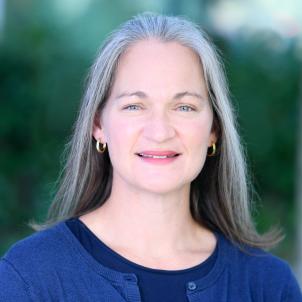News — In science, people often talk about “bench to bedside”—developing novel interventions in the lab and bringing them to patients. But as a physician-scientist, , thinks about that process differently.
“For me, it’s bedside to bench and back to bedside,” says Dr. Burgener. “As a physician, you treat patients and you see a problem that needs solving. You go to the lab and try to figure it out, and then you take those learnings back to the clinic. I find that really rewarding.”
Dr. Burgener, a pediatric pulmonologist who joined CHLA last summer from Stanford University, studies cystic fibrosis (CF), a genetic disorder that affects the lungs, pancreas and other organs. Funded by a K23 grant from the National Institutes of Health, she is leading translational research that aims to better understand and treat chronic airway infections in children with CF.
Her research focuses on a bacteria called Pseudomonas that causes chronic airway infections in CF. Her research has discovered that about half of patients with Pseudomonas are also infected with Pf phage—a type of virus that infects bacteria. Most bacteriophages kill the bacteria they infect, but this particular phage does not. Instead, it can make infections harder to treat by binding to certain antibiotics.
Her goal now is to see if this phage can be used as a biomarker to predict outcomes and guide treatment. “My plan is to eventually launch a clinical trial to see if this phage can help predict which antibiotics patients will best respond to,” she notes.
Originally from Tustin, California, Dr. Burgener was always interested in medicine. Her father is a pediatrician, and two family members were born with CF. Pediatric pulmonology was a natural fit—but her passion for research surprised her.
“As a fellow, I was intimidated by the lab at first,” she says. “But I loved it. I found that physician-scientists and PhD-trained scientists think about problems differently. And that leads to some really cool approaches and hypotheses.”


